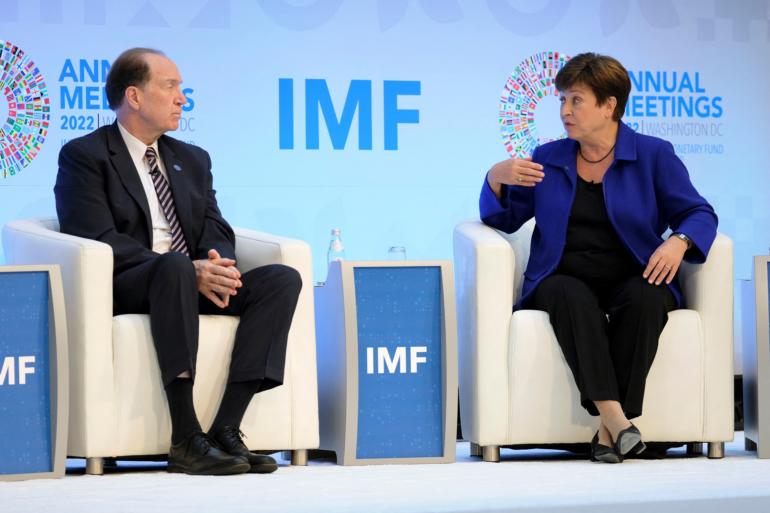For many of us, the impact of rising prices is all too real.
We see it every day – at the gas pump or when buying food. Here in the United States prices are rising faster than expected. The Consumer Price Index rose 8.2% through September – a 40-year high. At this week’s IMF-World Bank meeting in Washington, DC — the forecast was clear – countries accounting for a third of global economic output will shrink next year – suggesting that 2023 will feel like a recession to many around the world. Kate Fisher has a report.
To discuss:
- Sourabh Gupta is a resident senior fellow at the Institute for China-America Studies.
- James P. Moore is the founder and CEO of the Washington Institute for Business, Government and Society.
- Nicholas Economides is an economics professor at New York University’s Stern School of Business.
- Einar Tangen is a senior fellow at the Taihe Institute in Beijing.
For more:
The International Monetary Fund is downgrading its outlook for the world economy for 2023, citing threats including Russia's war against Ukraine, chronic inflation pressures, punishing interest rates and the lingering consequences of the global pandemic. https://t.co/saN7WIAC5q
— The Associated Press (@AP) October 11, 2022
High levels of inflation will persist longer in Britain than in almost all other advanced economies, warned the International Monetary Fund (IMF), which assesses economic conditions and recommends policies for sustainable growth to its member countries https://t.co/YGonluVLXg pic.twitter.com/DUIw1aaVPZ
— Financial Times (@FinancialTimes) October 11, 2022
 CGTN America
CGTN America

